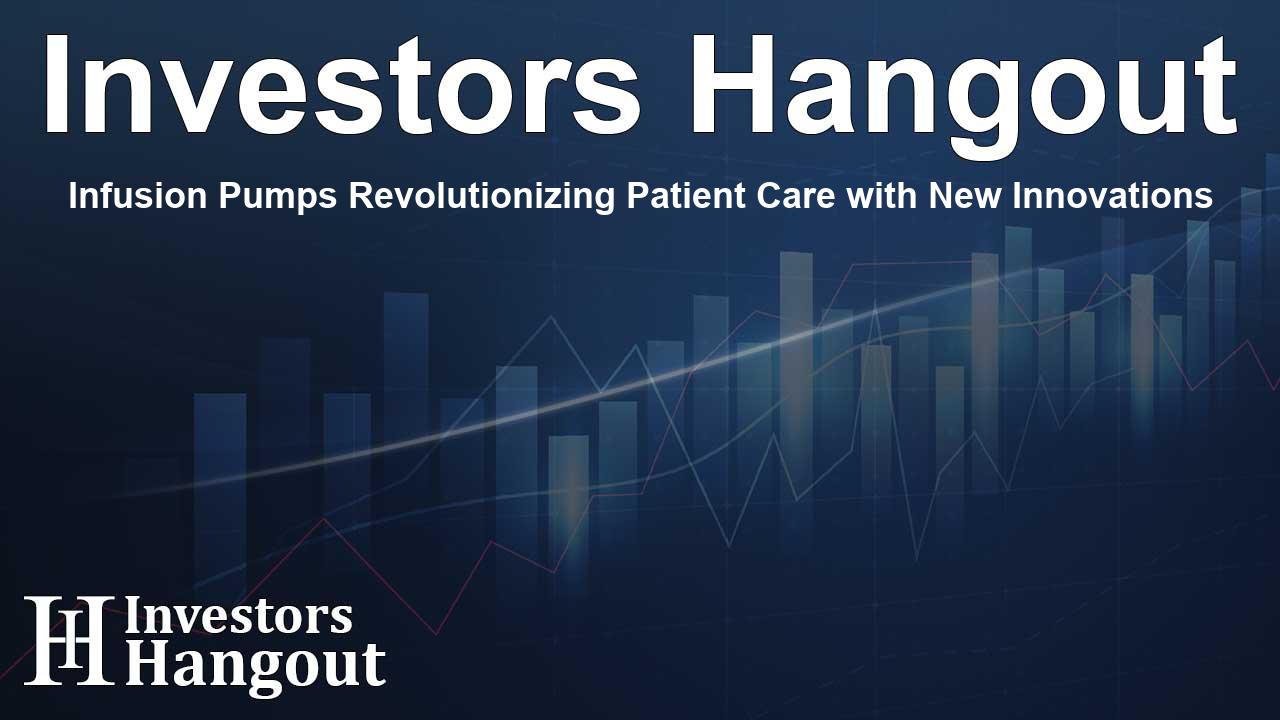Infusion Pumps Revolutionizing Patient Care with New Innovations

Understanding the Importance of Infusion Pumps
Infusion pumps are vital medical devices designed to deliver controlled fluids, medications, and nutrients directly into a patient’s bloodstream. These devices play an essential role in various healthcare settings, streamlining what could otherwise be an arduous manual process for medical staff. The introduction of infusion pumps has made treating patients needing precise medication administration much more efficient and effective, particularly in hospitals, nursing homes, and during home healthcare treatments.
Market Dynamics Driving Growth
Rise of Alternative Care Services
In recent years, there has been a notable shift towards alternative care services that encourage the use of infusion devices outside traditional hospital settings. The demand for home healthcare solutions has surged, spurring an increased need for infusion devices that reduce treatment costs by 30 to 45% compared to conventional hospital care. This trend has made infusion therapy more accessible and cost-effective, allowing patients to receive care in the comfort of their homes.
Innovative Multipurpose Infusion Pumps
Recent advancements in infusion pump technology have led to the development of multipurpose devices capable of providing multiple therapies simultaneously. Such innovations not only enhance patient care but also alleviate the pressures on healthcare professionals, reducing the likelihood of medication errors. For instance, companies like Caesarea Medical Electronic have designed sophisticated infusion pumps that target multiple conditions, underlining the trend towards more efficient healthcare solutions.
Regional Insights on Market Growth
North America leads the global infusion pump market, expected to grow significantly during the forecast period. Factors contributing to this growth include high technological adoption rates and the rising prevalence of chronic diseases like diabetes and cancer. In fact, nearly 80-90% of hospitals in the United States utilize advanced infusion devices. The increasing awareness surrounding diabetes management is driving this market, with approximately 63 million cases projected by 2045.
Segments of the Infusion Pumps Market
The global infusion pumps market can be grouped based on products, technology, usage, application, and end-users:
Product Segmentation
Infusion pumps are categorized primarily into insulin infusion pumps, large volume infusion pumps, syringe infusion pumps, and enteral feeding pumps. The insulin infusion pump segment has notably dominated the market due to its essential role in diabetes management.
Technological Developments
Market segmentation based on technology reveals a dominance of traditional infusion pumps, though specialty infusion pumps are emerging as noteworthy contenders, showcasing the evolution of medical technology.
Competitive Landscape
Leading companies in the infusion pump market include BD (Becton Dickinson), Baxter International, B Braun Melsungen, and Medtronic. Each of these players seeks to innovate and capture a larger market share through advancements in technology and service improvements.
Recent Developments in Infusion Technology
Recent launches in 2023 highlight the dynamic nature of the infusion pump market. For instance, Eitan Medical introduced the Avoset™ system designed for advanced therapy and drug delivery. Additionally, B. Braun unveiled the DoseTrac® enterprise infusion management software, reflecting a trend emphasizing data analysis and better equipment management.
Frequently Asked Questions
What are infusion pumps used for?
Infusion pumps are utilized for delivering medications and nutrients into the bloodstream in a controlled manner. They are crucial in hospitals and home healthcare settings.
How have infusion devices evolved?
Infusion devices have evolved from traditional single-patient uses to multipurpose systems capable of servicing multiple patients and providing diverse therapy options simultaneously.
Why is the North American market leading?
The North American market leads due to its advanced healthcare infrastructure, high prevalence of chronic diseases, and wide adoption of innovative medical technologies.
What are the key product segments in the infusion market?
The key product segments include insulin infusion pumps, syringe infusion pumps, enteral feeding pumps, and large volume infusion pumps, each catering to different patient needs.
Who are the major players in the infusion pump market?
Major players include BD, Baxter International, B Braun, ICU Medical, and Medtronic, among others, who continuously innovate to improve patient care.
About Investors Hangout
Investors Hangout is a leading online stock forum for financial discussion and learning, offering a wide range of free tools and resources. It draws in traders of all levels, who exchange market knowledge, investigate trading tactics, and keep an eye on industry developments in real time. Featuring financial articles, stock message boards, quotes, charts, company profiles, and live news updates. Through cooperative learning and a wealth of informational resources, it helps users from novices creating their first portfolios to experts honing their techniques. Join Investors Hangout today: https://investorshangout.com/
Disclaimer: The content of this article is solely for general informational purposes only; it does not represent legal, financial, or investment advice. Investors Hangout does not offer financial advice; the author is not a licensed financial advisor. Consult a qualified advisor before making any financial or investment decisions based on this article. The author's interpretation of publicly available data shapes the opinions presented here; as a result, they should not be taken as advice to purchase, sell, or hold any securities mentioned or any other investments. The author does not guarantee the accuracy, completeness, or timeliness of any material, providing it "as is." Information and market conditions may change; past performance is not indicative of future outcomes. If any of the material offered here is inaccurate, please contact us for corrections.